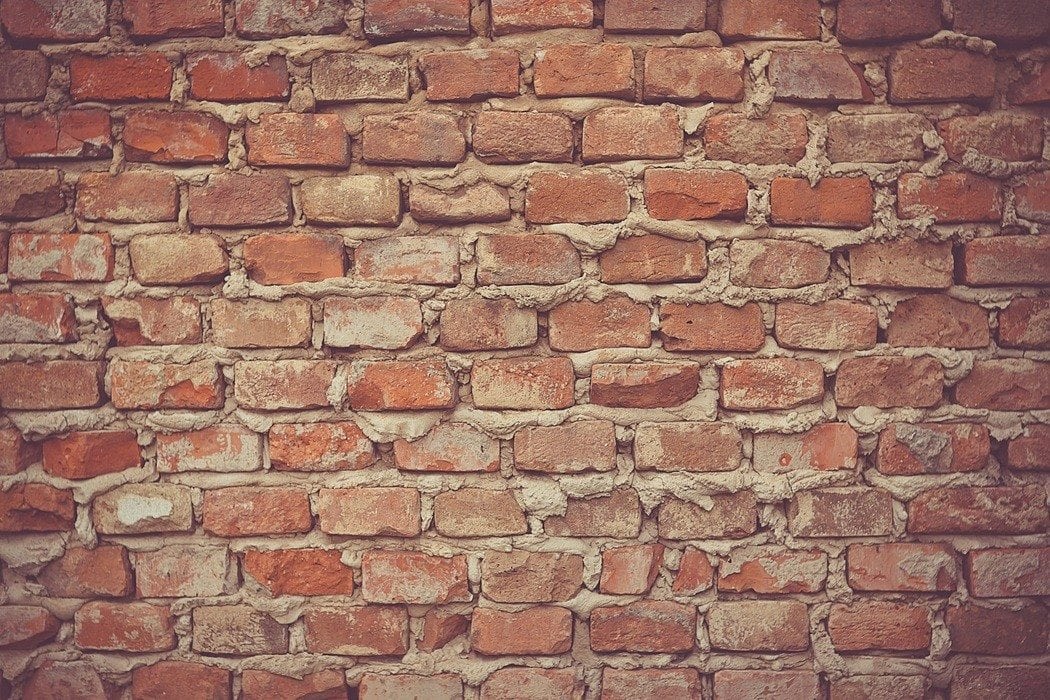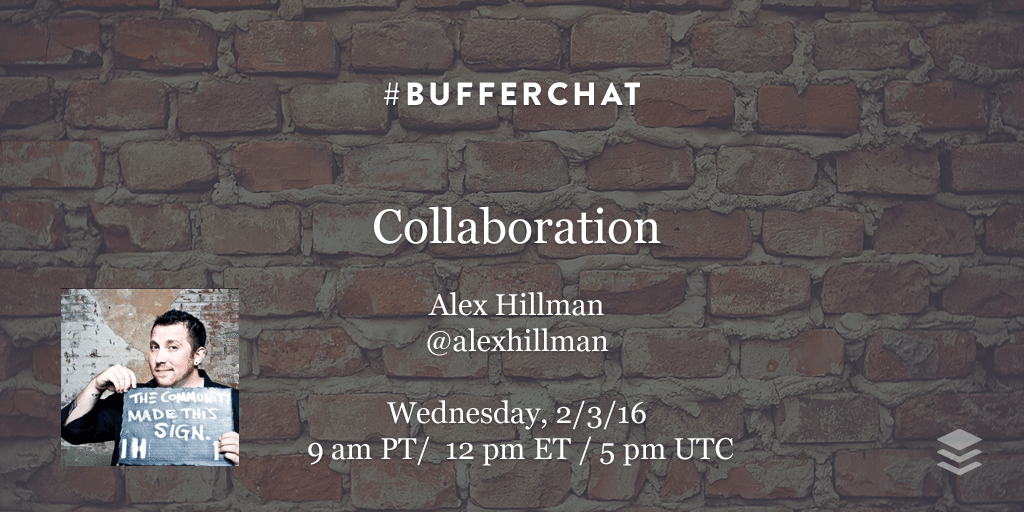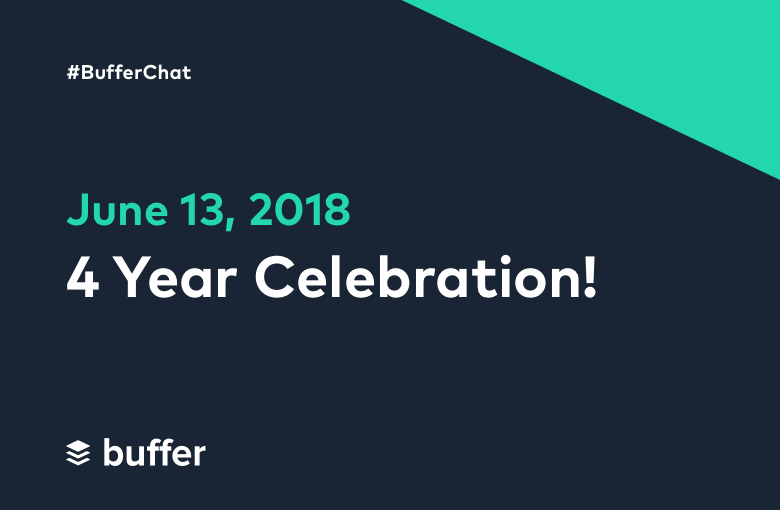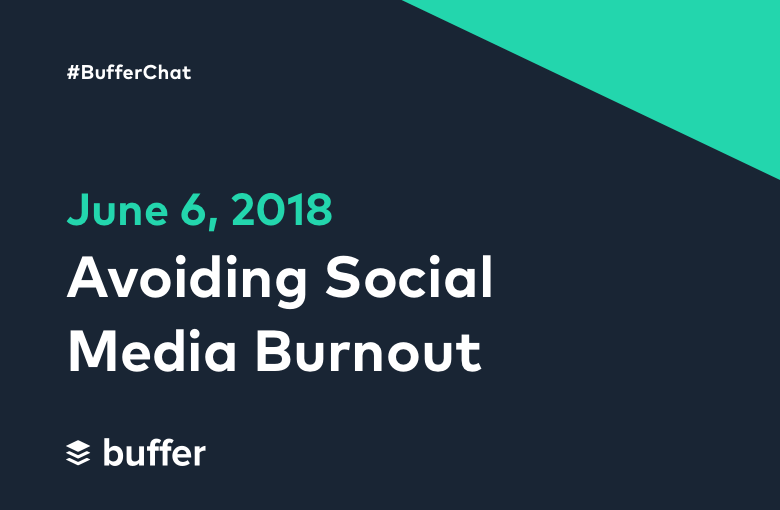
In the #bufferchat this week, we were joined by coworking connoisseur and community builder Alex Hillman to talk about the why, what and how behind collaboration! We discussed what makes collaborating work really well, how to tell when it’s not working, and lots of advice about how collaborating can lead to awesome experiences.
Catch our weekly Twitter chat, #bufferchat, every week on Wednesdays, 9 am PT / 12 pm ET / 5 pm UTC, for valuable industry insights and networking with nearly 400 other smart marketers and community managers. It’s a fun time!

Q1: Why collaborate?
From Alex:
- First, let’s make sure that we distinguish collaboration from “working together.”
- Working together is additive, in its best forms. But collaboration is a multiplier.
- If the only time you “collaborate” with people is when you need something from them, you’re not collaborating.
- Collaboration is the product of trust and shared goals. Collaboration isn’t just about the work.
- If the only thing that comes out of a collaboration is the work, what happens when the work goes awry? What are you left with?
- My #1 goal with any collaboration is to spend time with someone that I want to spend time with. The work itself is secondary.
- Build relationships before you need them.
From the community:
- “Collaborate to challenge your own assumptions, and mental model, expanding the learning & knowledge space.” @RalfLippold
- “Collaboration is added brain muscle, creativity & the infusion of many passions – like zesty guacamole w/ many ingredients!” @JS_insidepitch
- “Collaboration is an incredible multiplier of talent. Exhibit A: An orchestra.” @jseevers
See all the great answers to question 1 here!
Q2: What are the key aspects of great collaboration?
From Alex:
- Key aspect to a good collaboration is communication.
- It’s easy to collaborate when things are going great. When everyone is excited. But how will you act when things are terrible?
- Collaboration isn’t a platform to voice your opinions, and get your way. Collaboration is for listening.
- Two ears, one mouth. Listen (at least) 2x as much as you talk.
- Successful collaborations are by choice. You can’t FORCE collaboration. You can’t NEED collaboration.
- My most successful collaborations have produced lifelong friendships.
- The hardest part of successful collaborations is having integrity. Being the same person when things are good, and bad.
- You can’t “do collaboration.” You have to be a collaborator. http://dangerouslyawesome.com/2011/10/coworking-core-values-5-of-5-collaboration/ …
From the community:
- “Honesty. Communication. And knowing each others strengths and weaknesses to better complement each other!” @SocialDave
- “Making sure you keep an open mind. No one’s opinion is more important than anyone else on the team.” @StoreCoach
- “It is a journey. Don’t look to only confirm your ideas, let them evolve to something unexpected and new.” @J_Rouser
See all the great answers to question 2 here!
Q3: How can you know if you’re a good match with a potential collaborator?
From Alex:
- I look at collaboration a lot like dating.
- Lots of conversations. Most won’t pan out to more than a conversation. Some people, you just crave “more.”
- It’s hard to find out someone’s “real goal” from an initial conversation. Don’t hurry a potential collaboration.
- My #1 filter for potential collaborators is if I trust them.
- Not just “I don’t think you’re going to screw me over” kind of trust. I’m looking for “I want you to meet my friends” trust.
From the community:
- “Making sure you’re both “on the same page” from the get-go is vital. A solid honest chat is a good place to start :)” @KatLoughrey
- “They’re just as excited as you are. You motivate each other and celebrate each other’s contribution.” @JeremyDBond
- “If both of you are open to new ideas and support rather than dismiss each other. Collaboration takes Compromise.” @beartracks03
See all the great answers to question 3 here!
Q4: Is there such a thing as too many collaborators on a project?
From Alex:
- I’ve run large scale collaborations and small collaborations. “Too many” isn’t the real problem, though.
- The problem with large groups is when you don’t take the time to build a network of trust. Hurried groups fail.
- Successful collaboration doesn’t require consensus. If that’s your goal, you’re setting yourself up to fail.
- Most people have scars from group projects where there were “too many people” really means “I’m doing other peoples’ work.”
- That’s a completely different problem, and usually because the collaboration is only about the work.
- If you need consensus on an idea to move forward, you should rethink the way you’re executing that idea. ?
- You can’t collaborate w/someone who wants something different from you. But you don’t need to stop them from doing their thing.
- Fragmentation isn’t a bad thing. If it’s intentional, fragmentation can create resilience.
From the community:
- “W/ clearly defined roles and a process or plan you can have many different collaborators. A good moderator is key too!” @CommunityElf
- “Absolutely. Too many cooks in the kitchen = frustrated collaborators. Think “do I really need to be here?” & check that ego.” @margotcodes
- “Role definition is paramount. If there are 20 drummers & 2 violinists in your orchestra, it won’t sound…good.” @jseevers
See all the great answers to question 4 here!
Q5: Have you ever had a bad collaboration experience? How did you work through it?
From Alex:
- I generally avoid toxic collaborations from the start, but even good collaborations can find a natural end.
- Walking away from collaborations is hard, but most of the time if you’re miserable…so is the other person/people.
- I’ve done stupid things like overbook myself and realize I couldn’t pull my weight. I stepped down, apologized.
- But most importantly I try to leave a collab in a way that the door is still open in the future.
- Especially if we’re talking professional collaborations, NEVER stay together for the money.
- I’ve left partnerships and collabs and returned my share of the money. Hard decision, but the right thing to do.
- Also, some “bad” collaborations just need collab therapy. Trust fades over time if you don’t maintain.
- I was extremely ready to ask a partner to leave a business, because I had made up a story in my head that he didn’t care anymore.
- But we talked. I found out what was really going on. We decided to focus on our friendship. The biz partnership improved.
- If you’re dreading working with someone, you have two choices: talk to them, or get out. Avoidance kills.
From the community:
- “Bad experiences can turn into a learning curve. Don’t try and fix anyone, just move on and see how you can progress further.” @lafitara
- “The solution is to communicate right away and establish expectations. Don’t hold it in or it could end the project.” @conradc
- “Yes. Working w/ close-minded individuals is hard. In certain instances, it’s best to politely decline and go separate ways.” @JessMarranco
See all the great answers to question 5 here!
Q6: What are some unexpected collaborations that have worked really well?
From Alex:
- A few years ago I had met a guy who was working with Philly city government. Had seen him at events, decided to get a drink.
- We got to know each other and I was surprised by how smart, creative, and forward thinking he was.
- He was the opposite of what I thought of when I thought “government employee.”
- I said “you could be doing anything, why work in government?” he said “cuz i want to make Philadelphia better”.
- That was when I realized that we wanted the same thing. He just had a diff tolerance for bureaucracy than me.
- From that point on, I wanted everything he did for our city to succeed, and he the same for us at
@indyhall. - Countless relationships and opportunities formed as a result of that one evening at the bar.
- Only people can collaborate. Even when it’s “companies” doing collabs there are people at the helm. Easy to forget.
From the community:
- “I’ve met some awesome collaborators through twitter chats! (Oh wait, that’s not surprising given the smarties here!)” @darcyschuller
- “The ones where you don’t know at least one or all of the people you’re working with. Challenges are always great.” @CedricRichards
- “Teaming up with people from different channels. Having an outsiders perspective can really bring up new ideas.” @ValenciaSEM
See all the great answers to question 6 here!
Q7: What’s the greatest lesson you’ve learned about collaborating with others?
From Alex:
- I’ve learned that people are more likely to form real bonds over things that have nothing to do with work.
- Slow down to speed up. Take your time. People are complex, multi-faceted, and infinitely interesting. Let people surprise you.
- Karaoke is a surprisingly great way to practice collaboration.
- Karaoke seems like a solo thing (just you and a mic), but it’s really a collab with the audience.
- Great karaoke is a song that you want to sing and the audience wants to sing along to. True of all collabs.
- Pick a song that you know people want to sing, and they’re more likely to sing along with you. Real advice and a metaphor ?
- Give more than you take.
From the community:
- “Even when you may think your way is better, giving others a chance usually ends well and helps them grow + improve.” @izzydoesizzy
- “Keep an open mind, check your ego at the door, and accept that you don’t have all the answers.” @alanakwhite
- “I am so small and I know absolutely nothing. Very humbling experience and makes room to grow exponentially.” @michellesfondin
- “It’s way more fun to finish a project when you have someone to high five at the end of it.” @Lauchlin
- “Patience, patience, patience. Give everyone their chance to share their ideas, even if you may not agree initially.” @krspeier
See all the great answers to question 7 here!
—
Thank you so much to Alex for sharing these insights and to everyone who participated in this awesome chat!
Catch #bufferchat each Wednesday at 9 am PST, 12 pm EST, 5 pm UTC. Join our new Slack community with over 1,000 members to continue these awesome conversations all week long!
Do you have any comments or answers to these questions? Leave your thoughts in the comments! We’d love to hear from you!
Image sources: UnSplash
Try Buffer for free
140,000+ small businesses like yours use Buffer to build their brand on social media every month
Get started nowRelated Articles

We’ve decided to retire #bufferchat after four years and had a celebration with our community, Read on to discover all of the memories and fun shared during the chat! This week’s stats: Bufferchat (9 am PT): 118 participants; reach of 1,655,682 Q1: What’s been your favorite #bufferchat topic? From the community: A1: There’s been so many great #bufferchat that resonated with me. Standouts include: ✅Email Marketing with @p

This week on #bufferchat our community shared all the best tips and tricks to avoid social media burnout. Read on to discover all of the awesome insights shared during the chat! Catch our weekly Twitter chat , #bufferchat, at TWO times every Wednesday for valuable industry insights and to meet hundreds of other smart marketers and social media enthusiasts. Same topic, same place, just at different times – feel free t

This week on #bufferchat our community discussed the ins and outs of marketing on Pinterest. Read on to discover all of the awesome insights shared during the chat! Catch our weekly Twitter chat , #bufferchat, at TWO times every Wednesday for valuable industry insights and to meet hundreds of other smart marketers and social media enthusiasts. Same topic, same place, just at different times – feel free to join